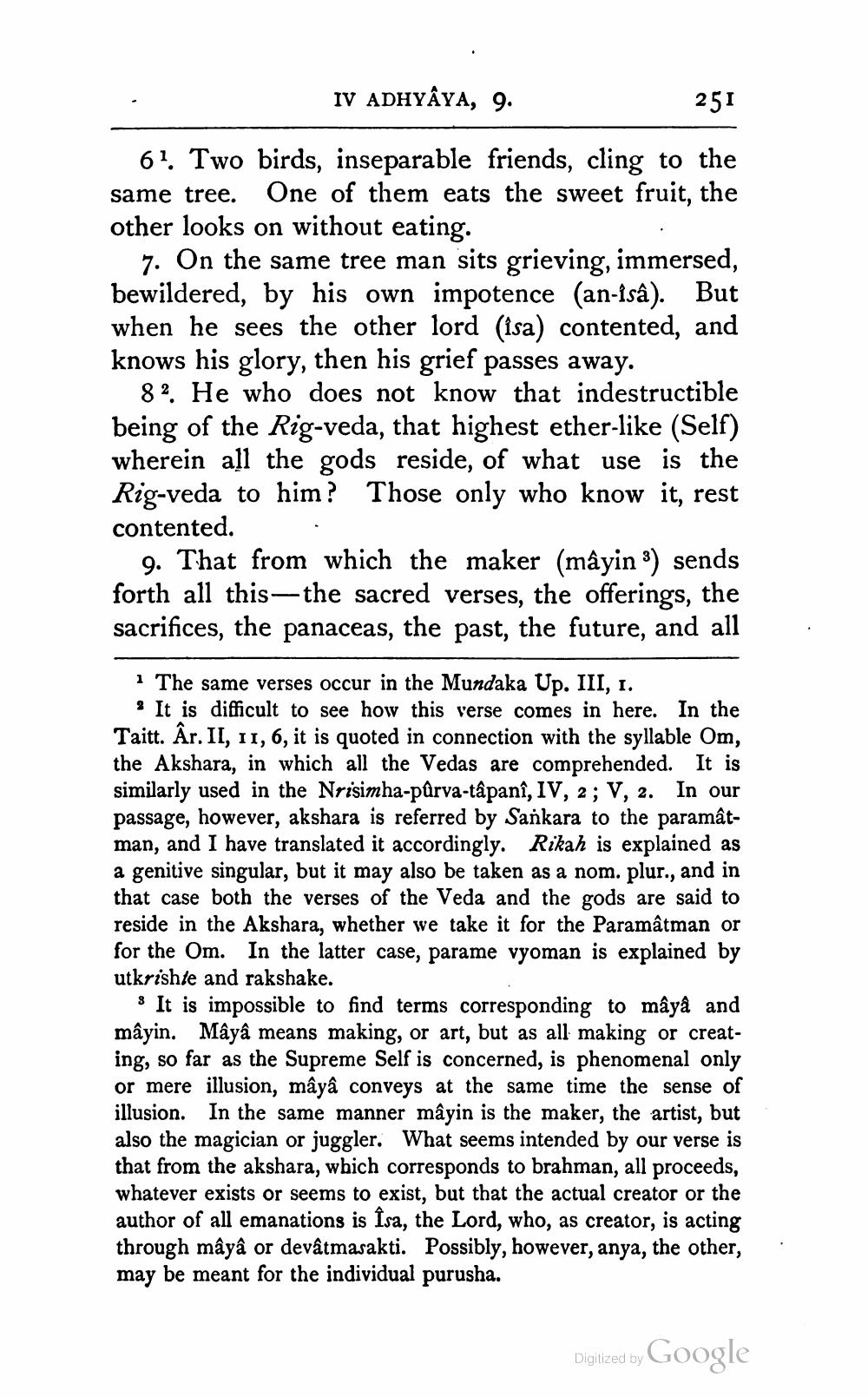________________
IV ADHYÂYA, 9.
251
61. Two birds, inseparable friends, cling to the same tree. One of them eats the sweet fruit, the other looks on without eating.
7. On the same tree man sits grieving, immersed, bewildered, by his own impotence (an-isa). But when he sees the other lord (isa) contented, and knows his glory, then his grief passes away.
82. He who does not know that indestructible being of the Rig-veda, that highest ether-like (Self) wherein all the gods reside, of what use is the Rig-veda to him? Those only who know it, rest contented. .
9. That from which the maker (mâyin ) sends forth all this—the sacred verses, the offerings, the sacrifices, the panaceas, the past, the future, and all
The same verses occur in the Mundaka Up. III, 1. ? It is difficult to see how this verse comes in here. In the Taitt. Âr. II, 11, 6, it is quoted in connection with the syllable Om, the Akshara, in which all the Vedas are comprehended. It is similarly used in the Nrisimha-pûrva-tâpanî, IV, 2; V, 2. In our passage, however, akshara is referred by Sankara to the paramâtman, and I have translated it accordingly. Rikah is explained as a genitive singular, but it may also be taken as a nom. plur., and in that case both the verses of the Veda and the gods are said to reside in the Akshara, whether we take it for the Paramâtman or for the Om. In the latter case, parame vyoman is explained by utkrishte and rakshake.
8 It is impossible to find terms corresponding to mâyâ and mâyin. Mâyâ means making, or art, but as all making or creating, so far as the Supreme Self is concerned, is phenomenal only or mere illusion, mâyâ conveys at the same time the sense of illusion. In the same manner mâyin is the maker, the artist, but also the magician or juggler. What seems intended by our verse is that from the akshara, which corresponds to brahman, all proceeds, whatever exists or seems to exist, but that the actual creator or the author of all emanations is Isa, the Lord, who, as creator, is acting through mâyâ or devâtmasakti. Possibly, however, anya, the other, may be meant for the individual purusha.
Digitized by Google




